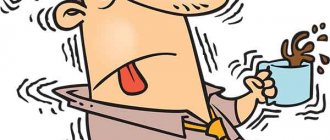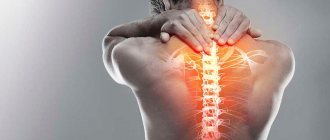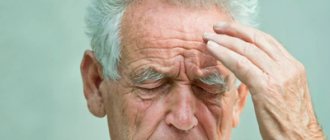Anxiety disorders are a common mental illness. Pathologies of this type do not belong to the group of severe ones. They are not accompanied by psychotic manifestations and behavioral disorders, but when they reach serious proportions, fears not only worsen the quality of life, but can pose serious problems for a person.
What is an anxiety disorder
Anxiety is a person’s tendency to worry. Many people experience anxiety before any important events or activities, and such worries are quite natural. Medical attention is required in cases where anxiety and fear occur for no apparent reason. A human condition accompanied by uncontrollable fear and a persistent feeling of anxiety is called an anxiety disorder (AD). Under the influence of anxiety, a deterioration in concentration is often observed, and a person often falls into depression. In most cases, the disease is completely curable. If you do not seek help from a doctor, the risks of complications and the occurrence of depressive disorders and pathological addiction increase.
Causes of anxiety
Why does anxiety occur and where does it come from? The amygdala, an area of the brain, is responsible for human emotions. As a natural adaptive reaction, every person has anxiety, but not everyone has anxiety disorders. According to numerous studies, experts identify several main factors that provoke the development of an anxiety disorder:
- hereditary predisposition;
- characteristics of upbringing and the prevailing atmosphere in the family;
- frequent traumatic situations;
- somatic diseases;
- inability to overcome crisis situations;
- self-dissatisfaction, low self-esteem and other internal conflicts;
- disruption of thinking processes.
Excessive consumption of alcohol, strong coffee, lack of sleep, and frequent stress make the human autonomic system more sensitive and increase the risk of developing anxiety disorders.
Signs of deviation in neurosis
Diagnosis involves a comprehensive assessment. Treatment of neurosis is prescribed after identifying the following fundamental signs that distinguish HP:
- The leading role of psychogenic deviation in the deterioration of well-being;
- Reversibility of deviations in the nervous system;
- The picture is not complemented by signs of psychosis (obvious mental disorders, phobias);
- The person does not have dementia, personality changes do not progress;
- The patient is aware of the pathological nature of thoughts and retains critical thinking.
As a rule, with neurosis, two types of symptoms are found: mental and physiological.
Types of Anxiety Disorders
Depending on the symptoms caused by anxiety and fear and the level of severity of the pathology, experts distinguish several types of anxiety disorders.
Panic disorder
People suffering from this type of illness experience a sudden and repeated feeling of horror. They occur even in the absence of specific events or emotional upheavals. Intense sweating, increased heart rate, dry mouth, feeling of suffocation, dizziness and lack of understanding of current realities are the dominant signs of panic disorders.
Social disorder
This type of pathology is also called social phobia. The disease manifests itself through the fear of getting into an awkward situation, the fear of becoming humiliated or the object of criticism. Often such anxiety is caused by low self-esteem. Sudden attacks can occur almost any time and anywhere - during group activities, while in a shopping center, cinema and other public places, when talking with a well-known person in the presence of strangers and other situations. When an anxiety attack occurs, facial flushing, nausea, hand trembling, and uncontrollable urges to urinate occur. The patient himself understands that his reaction is causeless and excessive, but he cannot control himself.
Adaptive phobias
These are anxiety and fears that arise in a specific specific environment. An attack can occur when a person is near animals of a particular species (for example, snakes), while in a confined space, at a height, or in the dark. Fear of air travel and medical procedures also belong to the group of specific phobias. When a person encounters a frightening stimulus, he immediately triggers anxiety, which manifests itself with corresponding signs. If the disease is not cured in a timely manner, then soon the person will simply limit himself to a full life.
Generalized disorder
It is expressed by sudden anxiety about any event, the likelihood of which is not justified and may not occur at all. With this type of illness, anxiety is not limited to any specific circumstances, so it is difficult for a person to determine the most dangerous situations for him. People suffering from generalized TR experience tachycardia, muscle tension, trembling, sweating, and dizziness. To make a diagnosis, such symptoms must continue for at least six months.
Agoraphobia
This is a group of TP, which simultaneously includes several phobias that combine the fear of crowded public places, as well as open spaces. For example, when visiting a store, being in a large crowd or in other crowded places, a person experiences anxiety. It manifests itself as palpitations, difficulty breathing, profuse sweating, and dizziness. Some people even have a panic attack.
Post-traumatic stress disorder
Occurs as a consequence after an extreme situation, for example, after rape, a natural disaster, an accident, abuse or bullying and other shocks. It manifests itself as sleep disturbance, increased heart rate, sweating, and suffocation.
Emotional disorders
This type of TR is typical in childhood. Panic may arise as a result of prolonged separation from parents, after severe emotional shock, or as a result of parental abuse of the child. It often happens that, not knowing how to eliminate an anxiety attack, a parent increases their anxiety even more.
Situational anxiety
A sudden change of events causes discomfort in a person. For example, dismissal from work, unplanned forced relocation, divorce and other life events. Everyone may have their own reasons, and one person may experience fear in a situation in which another does not react to it at all.
Social phobia
With this variant of the disorder, the patient experiences inadequate anxiety in situations where he has to speak in public.
He is afraid of unflattering assessments, ridicule, and condemnation from others. It seems to him that his appearance, clothes, manner of speaking and behaving only causes laughter, that he is stupider, uglier than other people. Manifestations of social phobia usually manifest during puberty. Important! Many people drink alcohol to alleviate the symptoms of the disease, and with this type of phobic neurosis, alcoholism occurs much more often than with other forms of neuroses and neurasthenia.
Main symptoms of TR
All possible signs of TR are divided into physical and psychological. Physical symptoms include:
- rapid pulse;
- labored breathing;
- dizziness and headaches;
- feeling of tightness in the chest;
- shiver;
- heartache;
- numbness of the limbs;
- increased sweating;
- pain in the stomach, heart;
- nausea;
- hot flashes;
- violation of thermoregulation;
- insomnia;
- general weakness.
Psychological symptoms include a feeling of fear, insensitivity to reality, disorientation, and causeless panic.
Agoraphobia
This is one of the most severe variants of the course of phobic neurosis. Symptoms of the disease worsen if a person is outside the home, in a crowd, in premises (shop, shopping center, etc.) from which it is difficult to get out. Diagnosed mainly at the age of 25–35 years , representatives of the fairer sex are more predisposed to it.
It is agoraphobia that is more often than other disorders of this type accompanied by panic attacks. This is a severe attack of uncontrollable fear, characterized by the following symptoms:
- feeling of suffocation;
- tachycardia, sensation of pulsation in the throat, temples;
- severe pain in the heart area;
- dizziness, possible depersonalization, derealization, in severe cases - fainting;
- numbness of the limbs;
- chills accompanied by sweating and trembling;
- fear of dying, losing capacity, losing your mind, losing control over your actions.
In a severe form of phobic neurosis, a person is afraid to leave the house , and to perform even basic actions (shopping, paying for utilities, etc.) he needs help.
TR treatment methods
A psychotherapist treats anxiety disorders in patients. Treatment options include medications, therapeutic modalities, and changes in the person's lifestyle.
Therapeutic treatment
TR treatment begins with a conversation between the doctor and the patient. During the conversation, the nature of anxiety is assessed, and factors that alleviate and aggravate the pathology are determined. For anxiety disorders, cognitive behavioral and psychotherapy provide good results. When conducting sessions, special psychological techniques are used to help the patient make changes in his behavior, thoughts and feelings that help get rid of fear and anxiety and aimed at recovery. It should be understood that the main cause of anxiety is often a psychological problem, therefore, without an individual course of psychotherapy, it is difficult to achieve recovery and the disease will return again and again. The psychotherapist will teach the patient to change negative emotions and thoughts to positive ones, to get rid of feelings that provoke anxiety attacks.
Drug treatment
Taking medications usually begins simultaneously with psychotherapeutic treatment. Pharmacological therapy includes:
- antidepressants. They normalize mood, relieve emotional stress, irritability, anxiety, apathy;
- anti-anxiety or anxiolytics. Suspends and prevents acute attacks of fear and panic;
- sedatives. They have a calming, relaxing effect and normalize sleep.
In each case, drugs are prescribed based on the patient’s personal characteristics (gender, age, concomitant diseases) and clinical picture.
Lifestyle change
If a person wants to get rid of anxiety disorders forever, then along with therapy and drug treatment, he needs to exercise daily, monitor the normalization of sleep, eat right, reduce caffeine consumption, and give up bad habits. A big plus for achieving a positive result will be quitting smoking.
Treatment of anxiety disorders in
Psychotherapists strongly recommend that everyone pay attention to their psychological state and, if even minor deviations from the norm are detected, seek professional help. Any increased anxiety that lasts for several hours or even several days is already a reason to consult a doctor. The psychotherapeutic center employs experienced psychotherapists who can help anyone in the treatment of anxiety disorders. When working with a patient, doctors use an integrated approach, combining pharmacotherapy and psychotherapy. This allows you to achieve positive results in the most difficult situations. Benefits of treatment in:
- accurate diagnosis in accordance with international standards;
- 100% effectiveness and safety of treatment;
- complete confidentiality;
- affordable price.
Doctors help patients get rid of anxiety disorders forever, even in the most hopeless situations. The prices for treatment are reasonable and justified by the quality of the services provided.








